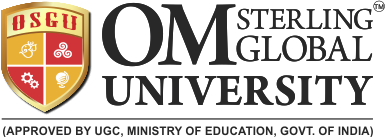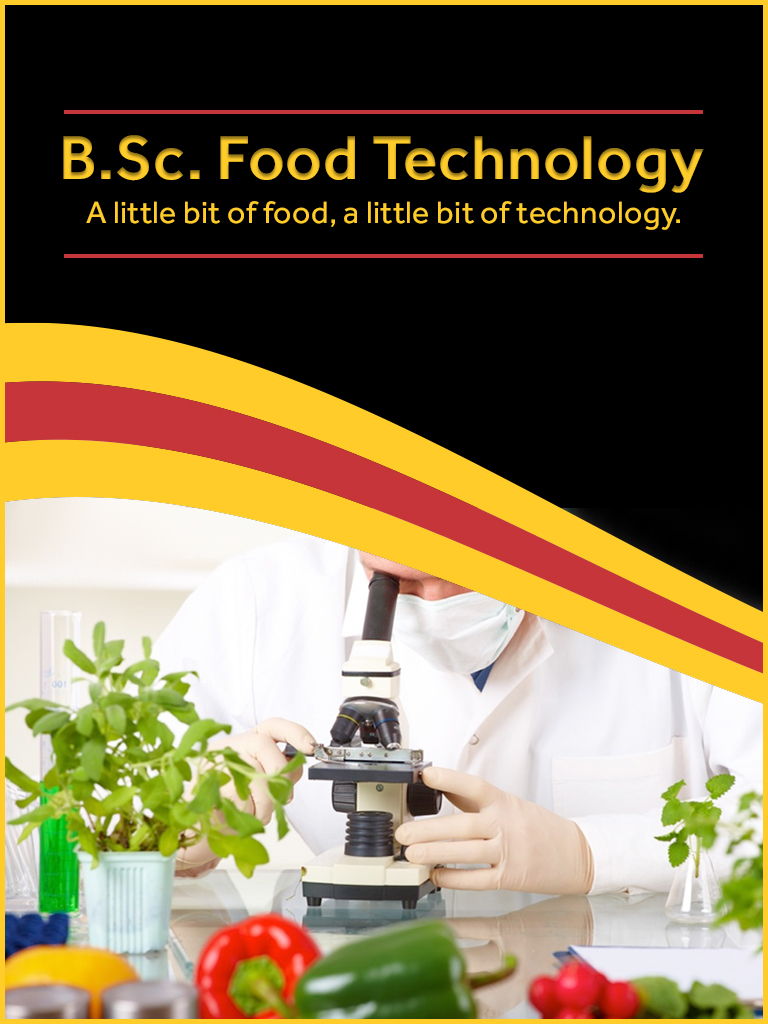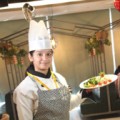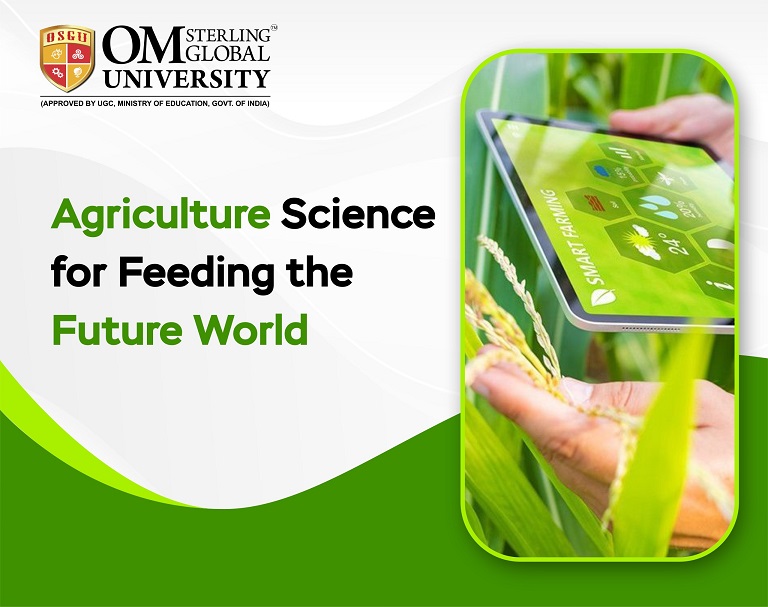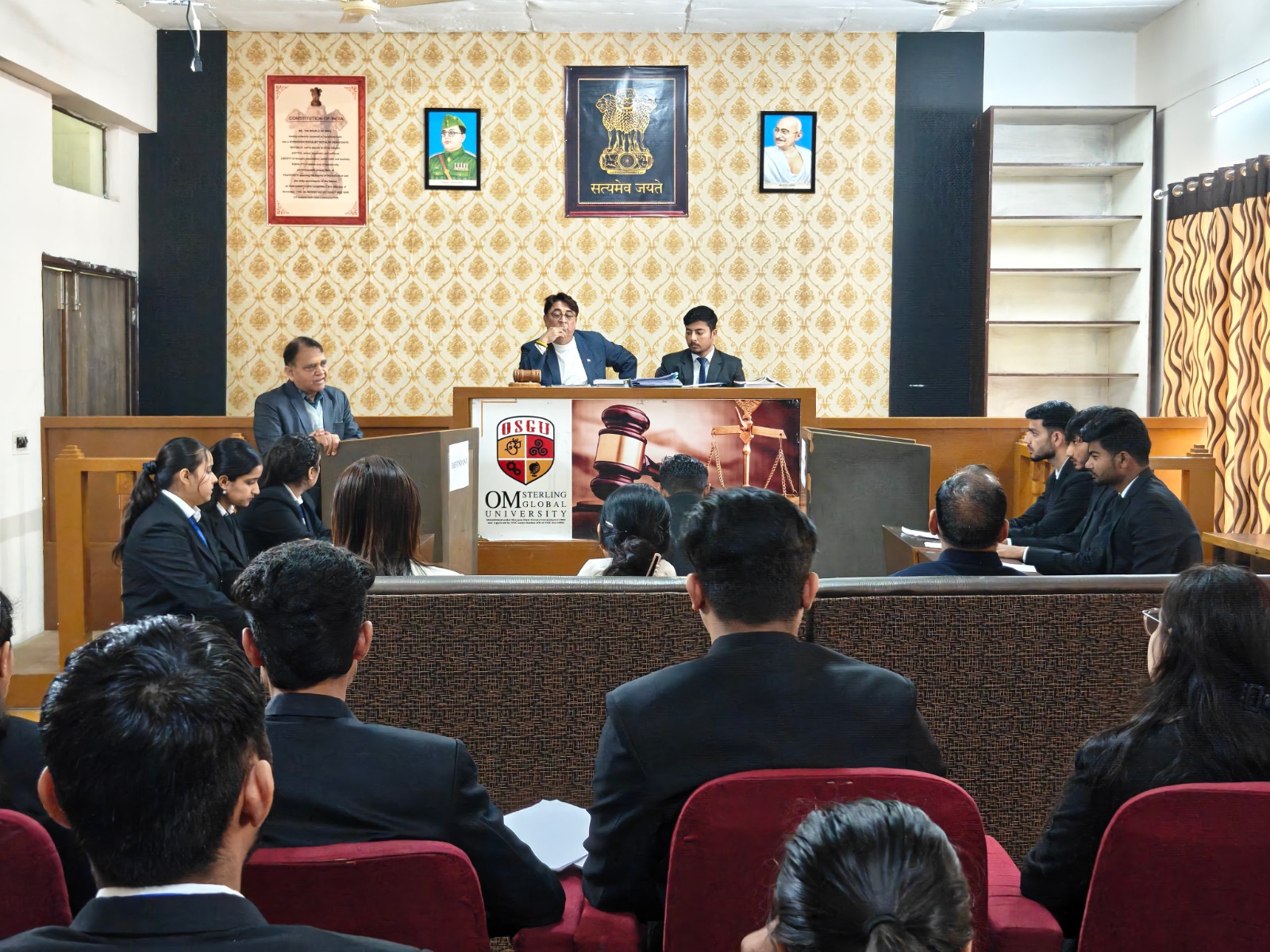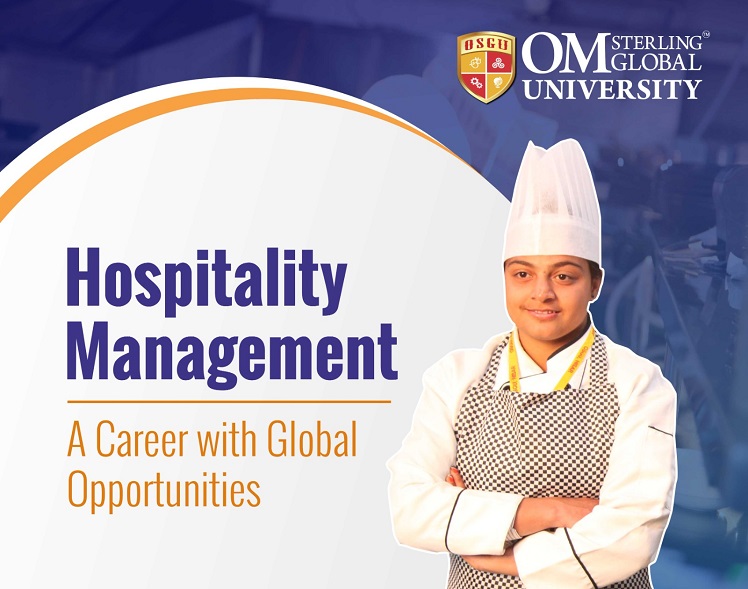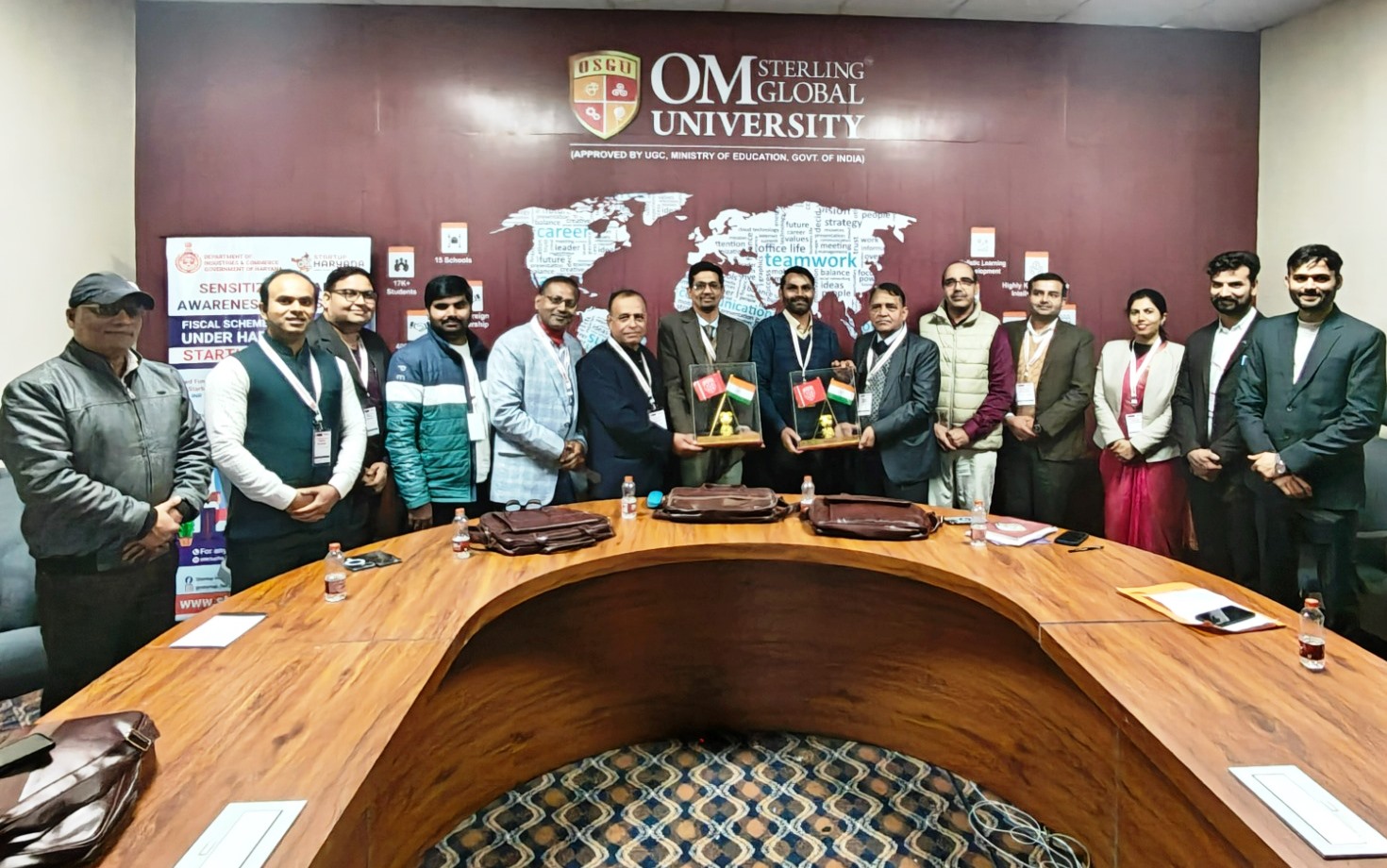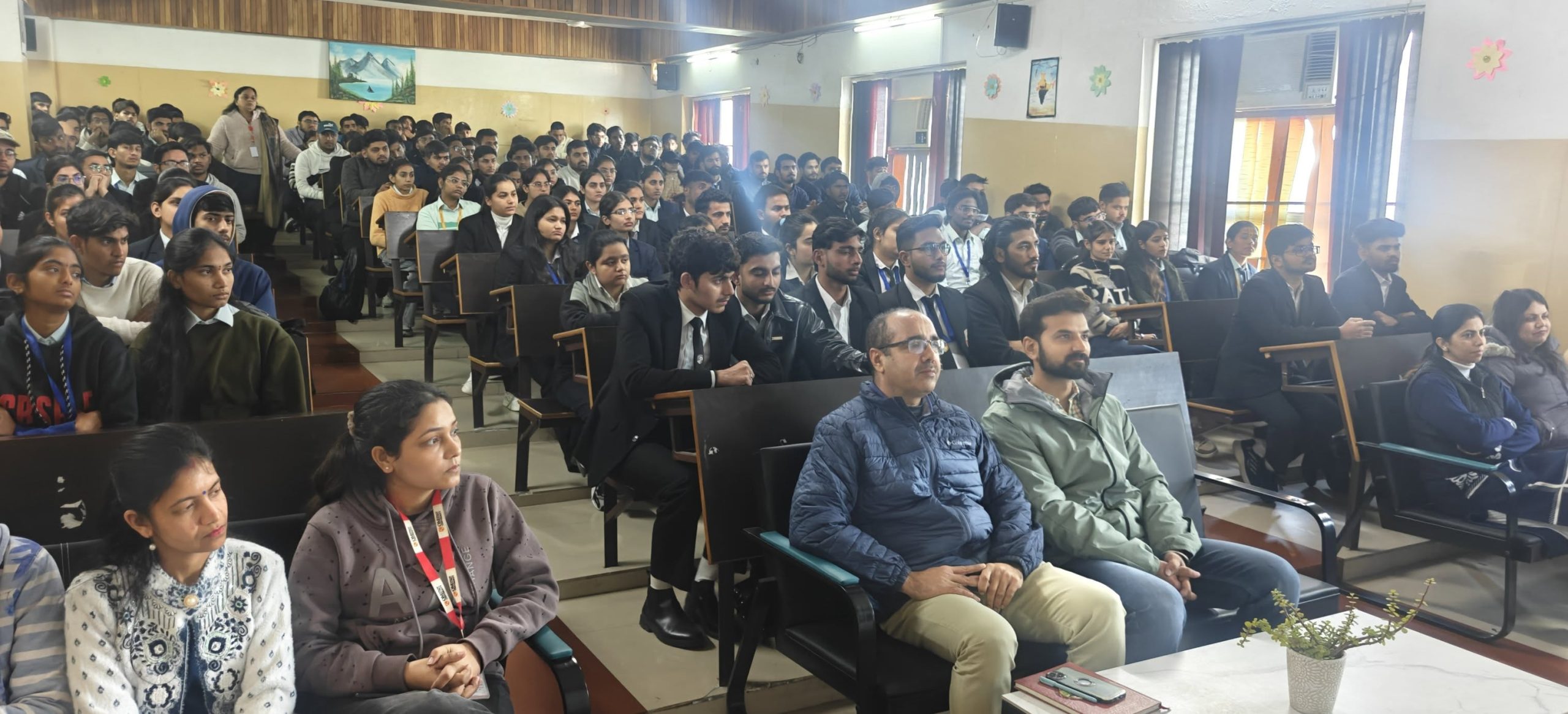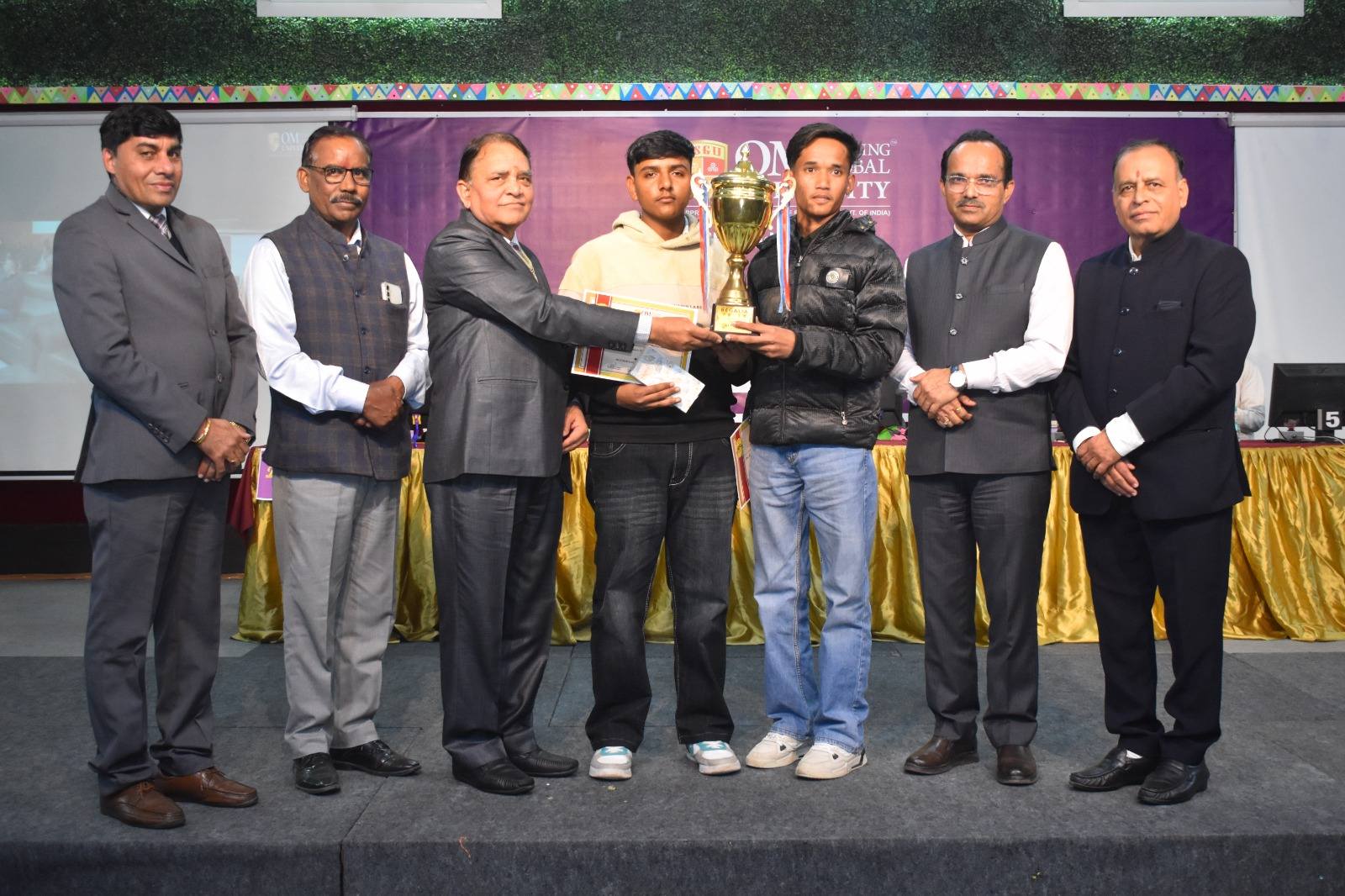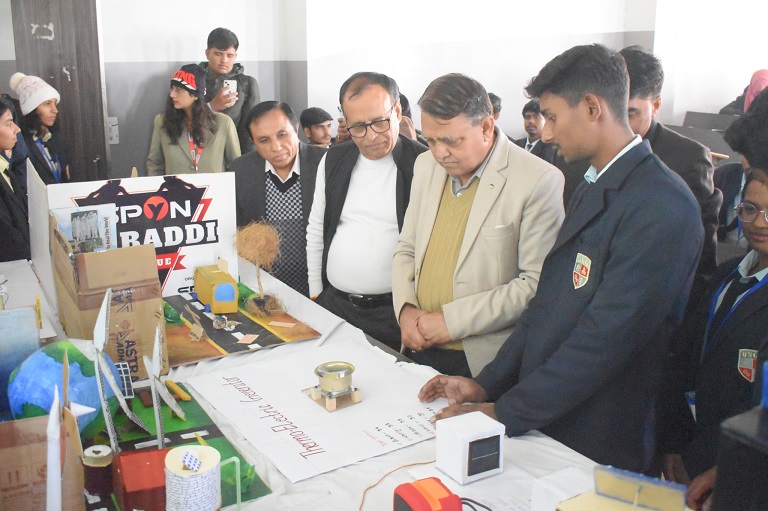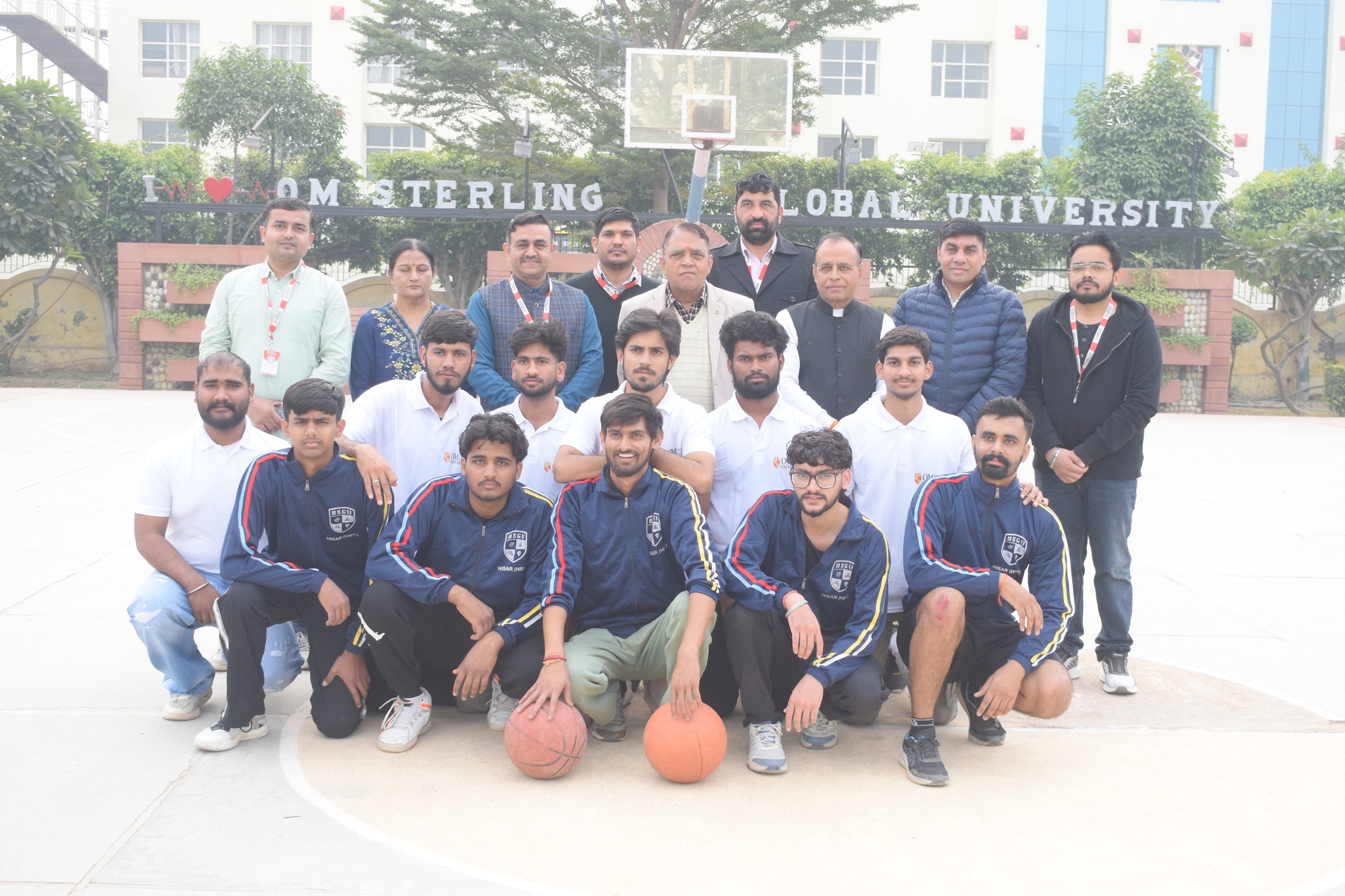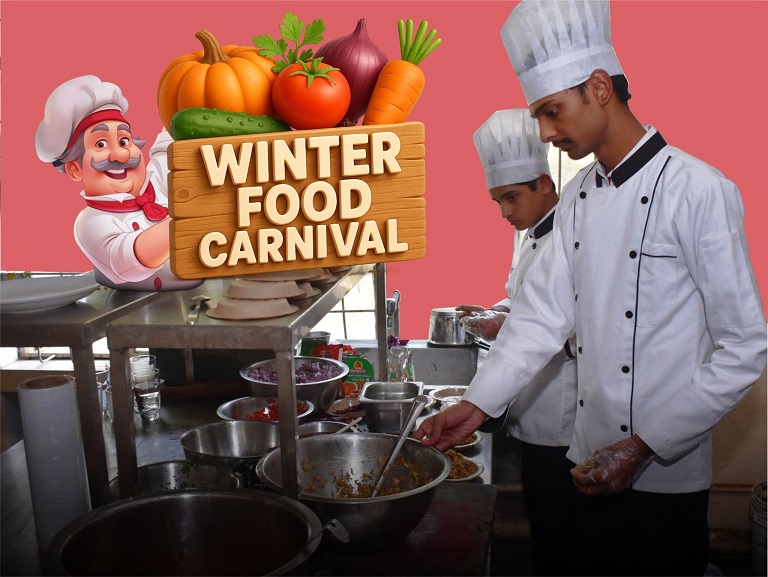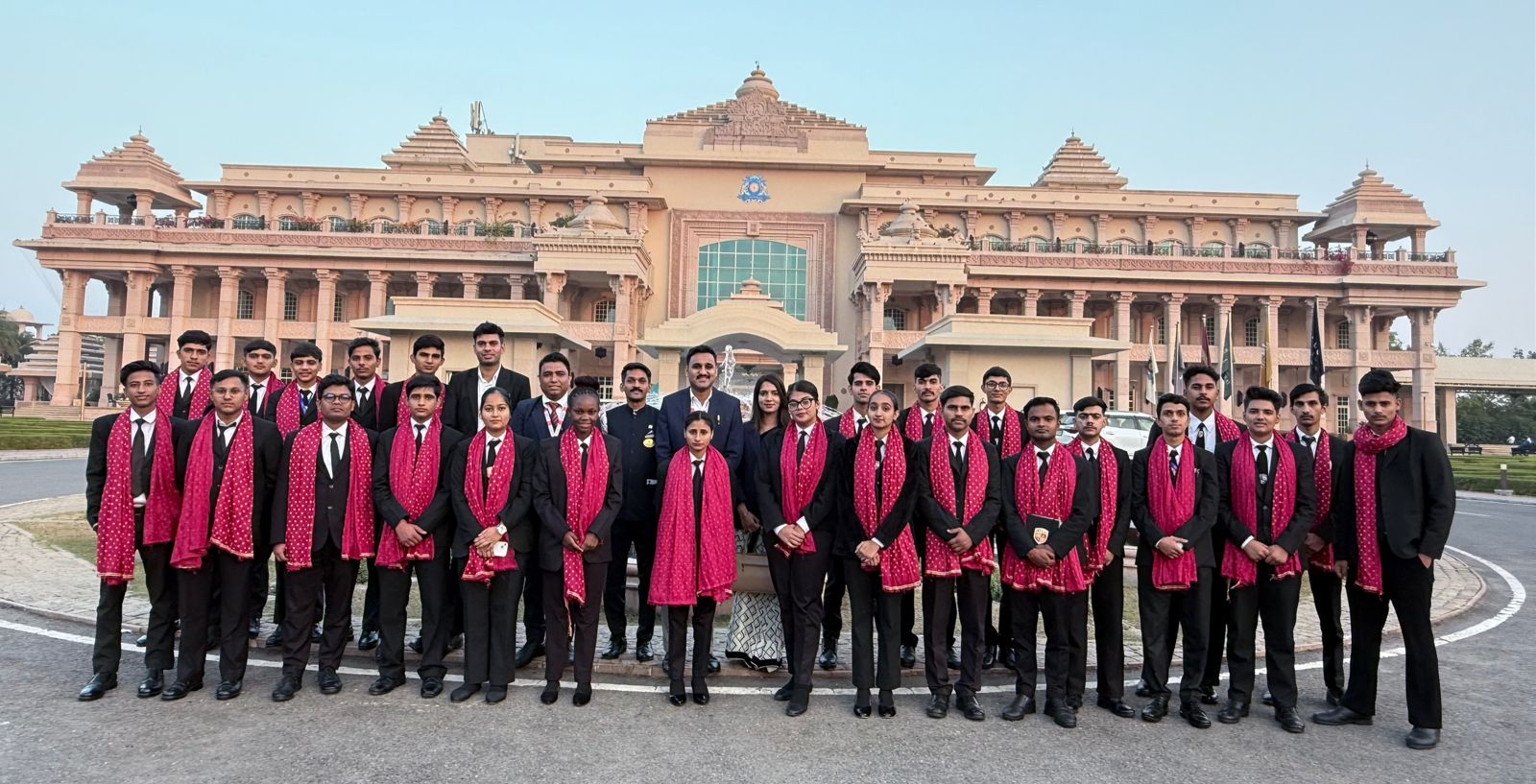
SAS-00

Graduation

3 Years
Programme Overview
The B.Sc. (Food Technology) program at OSGU is a 3-year undergraduate course focusing on food science, processing, safety, and quality management. It blends biotechnology, microbiology, chemistry, and engineering to develop sustainable food production methods.
Students gain expertise in food chemistry, microbiology, packaging, nutrition, and quality control, with hands-on training in modern laboratories. The program emphasizes food safety regulations, public health, and innovative food technologies, preparing graduates for careers in food industries, R&D, quality assurance, and regulatory agencies.
Through internships and research projects, students develop problem-solving and analytical skills, ensuring they are industry-ready or well-prepared for higher studies (M.Sc., Ph.D.). With the growing demand for safe and nutritious food, this degree opens vast career opportunities in the global food industry.
Programme Objectives
- Develop Core Knowledge – Equip students with a strong foundation in food science, processing, preservation, and safety.
- Enhance Practical Skills – Provide hands-on training in food analysis, quality control, and innovative food product development.
- Ensure Food Safety & Quality – Educate students on food laws, safety regulations, and hygiene standards for public health protection.
- Promote Research & Innovation – Encourage research in sustainable food production, biotechnology, and nutrition sciences.
- Industry Readiness – Train students for careers in food industries, quality assurance, R&D, and regulatory sectors.
- Foster Entrepreneurship – Inspire students to develop new food products and technologies, leading to startups and business ventures.
- Emphasize Sustainability – Teach eco-friendly food production methods, reducing waste and promoting sustainability.
- Prepare for Higher Education & Competitive Exams – Enable students to pursue M.Sc., Ph.D., or government exams in food technology and allied fields.
Programme Outcomes
Graduates of the B.Sc. (Food Technology) program will develop a strong scientific foundation in food processing, preservation, safety, and quality control. With hands-on experience in modern laboratories, they will master food analysis, microbiology, biotechnology, and nutritional sciences, ensuring expertise in maintaining food safety and public health standards.
Students will be well-equipped for careers in food industries, R&D, quality assurance, regulatory agencies, and entrepreneurship, applying their knowledge to innovate and improve food products. They will gain problem-solving, analytical, and research skills, enabling them to address real-world challenges in food security, sustainability, and technology advancements.
Emphasizing ethical and eco-friendly practices, graduates will be prepared for higher education (M.Sc., Ph.D.) or competitive government and industry roles. With the rising global demand for safe and nutritious food, they will emerge as skilled professionals, innovators, and future leaders in the food sector.
Career Path
Graduates of B.Sc. (Food Technology) have a wide range of career opportunities in food industries, research organizations, quality control, and regulatory sectors. They can work as Food Technologists, developing and innovating new food products while ensuring quality and safety, or as Quality Control/Assurance Officers, maintaining food standards in manufacturing industries. Roles such as Food Safety Officers in government and private sectors, Research & Development Scientists improving food processing techniques, and Food Microbiologists studying microorganisms for food safety are highly sought after. Additionally, graduates can explore careers as Nutritionists/Dietitians, promoting public health through food analysis, or work in packaging and labeling to develop sustainable food packaging solutions. Those with an entrepreneurial mindset can venture into food startups, organic farming, or innovative food product businesses. Higher education opportunities like M.Sc. and Ph.D. further enhance career prospects, along with government roles in FSSAI, food inspection, and regulatory bodies. With the food industry expanding rapidly, graduates has vast opportunities in multinational companies, research institutions, and global food supply chains, making this field both dynamic and rewarding
Eligibility Criteria
Minimum percentage and others criteria for admission will be as per UGC/ Concerned Regulatory Bodies.
Provided below are the criteria that need to be met for the given course.
For National Students
- 10+2 in PCM/PCB.
For International Students
- Rule framed by University Grants Commission (UGC) and notified in its website www.ugc.ac.in will be followed for deciding the eligibility and admission of International students to various courses offered in Om Sterling Global University, Hisar.
Programme Syllabus
Semester I
| S.No. | Subject |
|---|---|
| 01. | English Literature and Language-I |
| 02. | Applied Chemistry |
| 03. | Applied Chemistry (Practical) |
| 04. | Fundamentals of Food Technology |
| 05. | Fundamentals of Food Technology Practical |
| 06. | Principles of Food Science |
| 07. | Principles of Food Science (Practical) |
| 08. | Normal and Therapeutic Nutrition |
| 09. | Normal and Therapeutic Nutrition (Practical) |
Semester II
| S.No. | Subject |
|---|---|
| 01. | English Literature and Language-II |
| 02. | Technology of Food Preservation |
| 03. | Technology of Food Preservation (Practical) |
| 04. | Food Processing Technology |
| 05. | Food Processing Technology (Practical) |
| 06. | Laws of Food and Quality Assurance |
| 07. | Laws of Food and Quality Assurance practical |
| 08. | Fermented and Coagulated Milk Products |
| 09. | Fermented and Coagulated Milk Products Practical |
Semester III
| S.No. | Subject |
|---|---|
| 01. | Technology of Cereals, Pulses and Oilseeds |
| 02. | Technology of Cereals, Pulses and Oilseeds practical |
| 03. | Food Engineering |
| 04. | Food Engineering practical |
| 05. | Food and Nutrition |
| 06. | Biochemistry |
| 07. | Biochemistry practical |
| 08. | Processing of oils and fats |
| 09. | Food Chemistry |
| 10. | Food Chemistry practical |
Semester IV
| S.No. | Subject |
|---|---|
| 01. | Technology of Meat, Poultry and Egg products |
| 02. | Technology of Meat, Poultry and Egg products practical |
| 03. | Technology of Fruits, Veg. & Plantation crop |
| 04. | Technology of Fruits, Veg. & Plantation crop practical |
| 05. | Mathematics and Statistics |
| 06. | Mathematics and Statistics Practical |
| 07. | Food Waste Management |
| 08. | Food analysis |
| 09. | Fermented foods and beverages technology |
| 10. | Fermented foods and beverages technology practical |
Semester V
| S.No. | Subject |
|---|---|
| 01. | Food Industry Byproducts & Waste Utilization |
| 02. | Food Industry Byproducts & Waste Utilization Practical |
| 03. | Marketing Management & International Trade |
| 04. | Marketing Management & International Trade practical |
| 05. | Food Additives |
| 06. | Technology of Dairy and Sea food |
| 07. | Technology of Dairy and Sea food practical |
| 08. | Bakery, Confectionery and Snack Products |
| 09. | Bakery, Confectionery and Snack Products practical |
Semester VI
| S.No. | Subject |
|---|---|
| 01. | Processing of Spices and Plantation Crops |
| 02. | Processing of Spices and Plantation Crops Practical |
| 03. | Extrusion technology |
| 04. | Extrusion technology Practical |
| 05. | Food Plant Design And Layout |
| 06. | Food Plant Design And Layout |
| 07. | Enzymes in Food Industry |
| 08. | Enzymes in Food Industry practical |
| 09. | Entrepreneurship development |
| 10. | Entrepreneurship development practical |
How to Apply
You can fill-up the Admission Enquiry Form below if you have any queries regarding the admission procedure of B. Sc. in Medical. Now, if you are unable to decide on which programme to choose, feel free to reach out to us via the FREE tele-counseling button. If you have decided that you pursue B. Sc. in Medical and start a highly-rewarding career in this domain then go ahead and fill-up the Online Application now.

